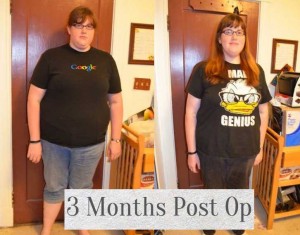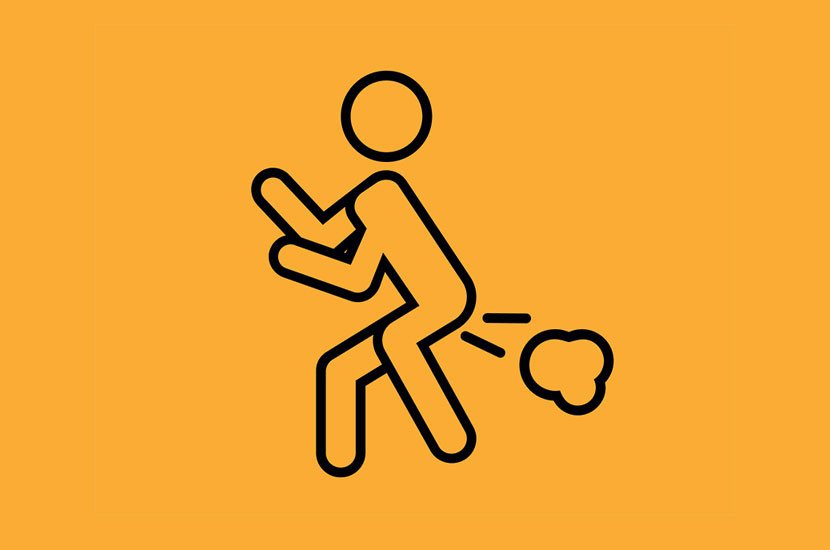Subscribe: RSS
Click play to listen to this interview.
Fallon had gastric bypass surgery only two months ago. The process and recovery is still fresh in her memory.
Background
Fallon had an unhealthy relationship with food for most of her life. In fact, at age 9 her parents put her on the Dolly Parton Diet (yes, cabbage soup all day, everyday). Needless to say, she developed some real food issues and a serious aversion to cabbage.
By age 18 her love/hate relationship with food turned into an eating disorder. She consumed around 200 calories a day along with a bevy of diet pills. She had a stroke.
Fully recovered from her stroke, Fallon was afraid to diet. So she ate. By age 24 she was 324 lbs.
Why She Chose Weight Loss Surgery
Her doctors and friends had previously suggested that Fallon consider weight loss surgery. But she was only 24 and surgery seemed too drastic.
It wasn’t until Fallon couldn’t fit on a theme park ride at her husband’s work event that she decided something had to change. She ended up researching weight loss surgery that day.
Tips and Tricks For Newbie Gastric Bypass Patients
 Fallon is only two months out from surgery and gives us a great perspective on her post-operative experience. She provides us with tips and tricks for newbie weight loss patients.
Fallon is only two months out from surgery and gives us a great perspective on her post-operative experience. She provides us with tips and tricks for newbie weight loss patients.
Expect the pain.
- Gastric Bypass is a major surgery and should not be taken lightly. It’s also quite painful.
- The pain goes away and the weight starts to drop quickly. “It’s all worth it.”
Do the psych and nutrition counseling prior to surgery.
- Everyone, including Fallon, thinks it’s a waste of time while you’re doing it.
- After surgery, you’ll put your learning to good use. You’ll be more successful and feel more prepared.
Pass gas.
- You’re going to have to pass gas in order to be discharged from the hospital.
- Don’t take any anti-gas medication around the time of your surgery.
Recognize ‘head hunger.’
- Recognize head hunger and differentiate it from real hunger.
- Head hunger is when your mind tells you that you need to eat even though you don’t feel hungry. It’s typically not rational and based on long-standing unhealthy habits with food.
Get Midol Complete.
- If you are female, it’s probable that you’ll get your period in the days following surgery.
- Ensure you have a non-NSAID medication if needed for your menstrual cycle. Midol Complete is not an NSAID (non-steroidal anti-inflammatory).
Stock up on Gas X Strips.
- Painful and foul smelling gas is common after weight loss surgery.
- Gas X Strips dissolve on your tongue and help relieve gas pain and reduce the frequency of flatulence.
Make a ‘Cough Pillow.’
- Your stomach muscles are sore after surgery. Coughing, sneezing and laughing all engage those muscles. And it hurts.
- A hard pillow is pressed against your stomach when you laugh, cough or sneeze. This helps your disengage your stomach muscles during events which normally activate those muscles.
Don’t have a recliner? Get a body pillow.
- You’ll have to sleep in an upright position for the first few days after surgery. If you don’t have a recliner a body pillow can be used to prop you upright.
Don’t Use Pepto Bismol
- Pepto Bismol is an NSAID and NSAIDs should never be taken after you’ve had weight loss surgery.
Walk.
- Walk as much as possible. It speeds recovery and helps create a healthy habit.
Expect exhaustion.
- You’ll be extremely tired for the first month or two. You will wake up being tired.
- Expect exhaustion. Take your vitamins and know that it will pass.
Don’t forget to eat.
- You may not be hungry at all for the first few months after surgery.
- Schedule healthy meals when your doctor clears you to eat regular foods (typically after the first month)
Get a Fitbit
- Try to get over 10,000 steps a day.
Download the Baritastic App
- This app will help you stay motivated, sync with your Fitbit and track your nutrition.
Connect With Fallon
Fallon is documenting her journey on Facebook. She shares great tips and tricks and opens up about her gastric bypass journey.
You can connect with her at www.facebook.com/becomingthinyn/


